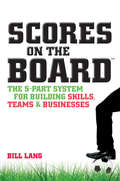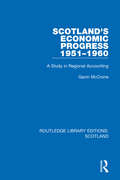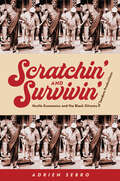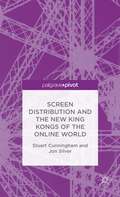- Table View
- List View
ScoreBig
by William A. Sahlman Jeffrey T. Glass Evan RichardsonThe founding team at ScoreBig, an event ticketing company, is on the verge of a public launch of their product. The company has made great progress in negotiating access to tickets, designing its interface, and building a proprietary architecture. For consumers, ScoreBig offered the opportunity to buy tickets at below face value. For event managers, ScoreBig helped solve the problem of filling empty seats and recruiting new customers in a way that did not harm other forms of ticket sales. ScoreBig has raised over $20 million in three rounds of financing.
ScoreBig
by William A. Sahlman Jeffrey T. Glass Evan RichardsonThe founding team at ScoreBig, an event ticketing company, is on the verge of a public launch of their product. The company has made great progress in negotiating access to tickets, designing its interface, and building a proprietary architecture. For consumers, ScoreBig offered the opportunity to buy tickets at below face value. For event managers, ScoreBig helped solve the problem of filling empty seats and recruiting new customers in a way that did not harm other forms of ticket sales. ScoreBig has raised over $20 million in three rounds of financing.
Scores on the board
by Bill LangJIMMY IS UNEMPLOYED AND DIRECTIONLESS, and has been roped into coaching the local junior soccer team. Peter is a struggling small businessman, trying to grow his business and find time for his family. Newly single soccer mum Elizabeth is looking for a way to stay at home, earn an income and still have time to raise her son. David is a career high-flyer on the verge of crashing and burning; his approach to leadership has put his career under threat, and makes him a poor role model for his son. Scores on the Board brings together these engaging characters through the journey of an under 11s soccer team -- the Southside Vikings. Using the 5-part Scores on the BoardTM system, Jimmy transforms the Vikings from the easybeats of the competition into an enthusiastic and committed team of rapidly improving players. Along the way, Jimmy and parents Peter, Elizabeth and David also learn how to transform their careers and perspectives on life. Incorporating the latest research from Harvard Business School, the field of neuroscience and practices from some of the world's most successful professional sports and business teams, Scores on the BoardTM is a simple, effective system that delivers dramatic results when applied to pursuing goals in personal development, team-building or business management. This fast-paced, entertaining story will have you cheering for the Southside Vikings and their inspiring vision of what it means to be a winner -- regardless of what the scoreboard says. With this game plan, Scores on the BoardTM may be the best investment you ever make.
Scoring Four-Way Wins With Total Leadership in Your Organization
by Stewart D. FriedmanA Total Leadership program in your organization can improve performance, satisfaction, and alignment in employees' four life domains-work, home, community, and self. As a result, your organization will increase its innovativeness and competitiveness, improving talent retention, and reducing health-care costs.
Scoring Your Risk Intelligence (or Risk IQ): Measuring Your Risk Assessment Skills
by David ApgarIt's a great myth about risk-taking that since risks average out, they rarely create persistent winners and losers. In fact, as the author points out, nonrandom, or learnable risks do create winners and losers, which means risk is no excuse. No one can guarantee risky results, but wise choices could lead us to risks we are good at evaluating, and unwise choices could lead us to risks we are bad at evaluating. So we must choose well. This chapter provides a simple method for assessing whether you are more likely to win or lose with the various learnable risks of your potential projects. This chapter is excerpted from "Risk Intelligence: Learning to Manage What We Don't Know."
Scoring und Nutzwertanalysen: Ein Leitfaden für die Praxis
by Jörg B. KühnapfelDieses Buch unterstützt Manager und Projektverantwortliche bei komplexen Entscheidungen im Umgang mit Scoring-Modellen bzw. Nutzwertanalysen. Sie zählen zu den meist genutzten Methoden in Unternehmen. Doch nur eine sachgerechte Durchführung liefert belastbare Ergebnisse. Anschaulich wird erläutert, wie methodisch korrekte Scorings erstellt bzw. Nutzwertanalysen richtig durchgeführt werden, um alle relevanten Aspekte einer Entscheidung einzubeziehen und das Restrisiko valide zu bestimmen. Die Darstellung orientiert sich am Managementalltag – ohne Abstriche in puncto Korrektheit – und hilft Verantwortlichen, künftig sicherer und besser zu entscheiden.
Scotland Yard's Ghost Squad: The Secret Weapon Against Post-War Crime
by Dick KirbyWhen the Second World War ended, England was bombed-out and starving, with practically every saleable commodity rationed. It was the age of austerity and criminal opportunity. Thieves broke into warehouses, hijacked trucks and ransacked rail yards to feed the black market; others stole, recycled or forged ration coupons. Scotland Yard was 6,000 men under strength but something dramatic had to be done and it was.Four of the Yards best informed detectives were summoned to form the Special Duties Squad and were told: Go out into the underworld. Gather your informants. Do whatever is necessary to ensure that the gangs are smashed up. We will never ask you to divulge your sources of information. But remember you must succeed.They did. Divisional Detective Inspector Jack Capstick, a brilliant thief-taker and informant runner, Detective Inspector Henry Clark, who knew the south London villains as few other detectives did and in addition, possessed a punch like the kick of a mule, and Detective Sergeants Matt Brinnand and John Gosling, who topped the Flying Squad wartime arrests, both individually and collectively. In under four years they arrested 789 criminals, solved 1,506 cases and recovered stolen property valued at 250,000 or 10 million by todays standards, with the aid of their informants, undercover officers and their own, unsurpassed ability.The Special Duties Squad was a one-off. How the four officers accomplished their task is divulged in this thrilling book, using hitherto unseen official documents and conversations from people who were there.
Scotland Yard's Murder Squad
by Dick KirbyGet a behind-the-scenes look at fourteen historic cases from the Murder Squad of Scotland Yard in this collection perfect for true crime fans.In 1906 the Metropolitan Police Commissioner was asked by the Home Office to make available skilled investigators for murder inquiries nationwide as few constabularies had sufficiently skilled—or indeed, any—detectives.Thus was born the Reserve Squad, or Murder Squad, as it later became known. Despite a reluctance by some forces to call upon The Met, the Murder Squad has proved its effectiveness on countless occasions with its remit extended to British territories overseas. A particularly sensitive case was the murder of a local superintendent on St. Kitts and Nevis.A former Scotland Yard detective, the author uses his contacts and experiences to get the inside track on a gruesome collection of infamous cases. Child murderers, a Peer’s butler, a King’s housekeeper, gangsters, jealous spouses and the notorious mass murderer Dr. Bodkin Adams compete for space in this spine-chilling and gripping book which is testament to the Murder Squad’s skills and ingenuity—and the evil of the perpetrators.Brimming with gruesome killings, this highly readable book proves that there is no substitute for old fashioned footwork and instinct.
Scotland and Tourism: The Long View, 1700–2015 (Routledge Advances in Tourism)
by Alastair J. DurieTourism has long been important to Scotland. It has become all the more significant as the financial sector has faltered and other mainstays are in apparent long-term decline. Yet there is no assessment of this industry and its place over the long run, no one account of what it has meant to previous generations and continues to mean to the present one, of what led to growth or what indeed has led people of late to look elsewhere. This book brings together work from many periods and perspectives. It draws on a wide range of source material, academic and non-academic, from local studies and general analyses, visitors’ accounts, hotel records, newspaper and journal commentaries, photographs and even cartoons. It reviews arguments over the cultural and economic impact of tourism, and retrieves the experience of the visited, of the host communities as well as the visitors. It questions some of the orthodoxies – that Scott made Scott-land, or that it was charter air flights that pulled the rug from under the mass market – and sheds light on what in the Scottish package appealed, and what did not, and to whom; how provision changed, or failed to change; and what marketing strategies may have achieved. It charts changes in accommodation, from inn to hotel, holiday camp, caravanning and timeshare. The role of transport is a central feature: that of the steamship and the railway in opening up Scotland, and later of motor transport in reshaping patterns of holidaymaking. Throughout there is an emphasis on the comparative: asking what was distinctive about the forms and nature of tourism in Scotland as against competing destinations elsewhere in the UK and Europe. It concludes by reflecting on whether Scotland's past can inform the making and shaping of tourism policy and what cautions history might offer for the future. This prolific long-term analysis of tourism in Scotland is a must-read for all those interested in tourism history.
Scotland: The Story of a Nation
by Magnus MagnussonScotland from antiquity through the end of the Stuart monarchy in Britain (1714) with just a little of Scotland's history during the reign of the Hanoverians, Victoria and during the twentieth century. Well written, scholarly while remaining a easily read enjoyable history.
Scotland’s Economic Progress 1951-1960 (Routledge Library Editions: Scotland #20)
by Gavin McCroneOriginally published in 1965, this book subjected the economic performance of Scotland to close examination. The progress of the Scottish economy from 1951 to 1960 was assessed in quantitative terms and estimates provided of Scottish gross domestic product, income from employment, gross profits and other economic statistics. Chapters are devoted to output and investment in manufacturing in industry and to personal income and expenditure. The results showed the extent to which the Scottish economy lagged behind the rest of the UK, especially during the latter part of the decade.
Scott Paper Co.
by Jeremy Cott Stuart C. GilsonA professional turnaround manager attempts to implement a massive global downsizing program at the world's largest producer of consumer tissue products. The plan involves laying off almost one third of the company's 34,000 hourly and salaried employees and dramatically changing the company's business focus through massive asset sales-all in less than a year.
Scottish Company Law
by Brian Pillans Nicholas BourneThe second edition of this successful book incorporates many important developments, such as the changing judicial approach to directors' duties and disqualification orders, recent developments in auditors' liability and the effect of the House of Lords decision in Sharp v Thompson. New legislation includes the Competition Act 1998 and the Human Rights Act 1998. Recent work of the Law Commissions on Shareholder Remedies and Directors Duties is examined. The ongoing debate on corporate governance is brought up to date with the incorporation of the Greenbury and Hampel Reports and the Combined Code on Corporate Governance and the work of the DTI on reform of company law is explained.
Scovill, Inc.: NuTone Housing Group
by Kenneth A. Merchant Lourdes FerreiraDescribes a conflict between the corporate controller and a division president about labor standards, which the division purposefully overstates to protect its margins. Illustrates the multiple roles of standards, and the roles of controllers and line management in resolving such conflicts.
Scrapbooking for Profit: Cashing in on Retail, Home-Based, and Internet Opp
by Rebecca F. PittmanThis comprehensive guide reveals 11 paths to making money in the scrapbook market, along with the tools to do it. Every career option, business situation, and topic a scrapbook artist may encounter is covered in clear, calm, step-by-step explanations and short, easy-to-grasp chapters. Quotes, advice, and tips from industry experts; checklists and self-assessment questionnaires; convenient business forms, sample contracts, and planning tools; and amusing illustrations-plus a supportive, you-can-do-it tone-make Scrapbooking for Profit the best friend a scrapbooking entrepreneur can have.
Scraping By: Wage Labor, Slavery, and Survival in Early Baltimore
by Seth RockmanEnslaved mariners, white seamstresses, Irish dockhands, free black domestic servants, and native-born street sweepers all navigated the low-end labor market in post-Revolutionary Baltimore. Seth Rockman considers this diverse workforce, exploring how race, sex, nativity, and legal status determined the economic opportunities and vulnerabilities of working families in the early republic. In the era of Frederick Douglass, Baltimore's distinctive economy featured many slaves who earned wages and white workers who performed backbreaking labor. By focusing his study on this boomtown, Rockman reassesses the roles of race and region and rewrites the history of class and capitalism in the United States during this time. Rockman describes the material experiences of low-wage workers—how they found work, translated labor into food, fuel, and rent, and navigated underground economies and social welfare systems. He also explores what happened if they failed to find work or lost their jobs. Rockman argues that the American working class emerged from the everyday struggles of these low-wage workers. Their labor was indispensable to the early republic’s market revolution, and it was central to the transformation of the United States into the wealthiest society in the Western world. Rockman’s research includes construction site payrolls, employment advertisements, almshouse records, court petitions, and the nation’s first "living wage" campaign. These rich accounts of day laborers and domestic servants illuminate the history of early republic capitalism and its consequences for working families.
Scraping By: Wage Labor, Slavery, and Survival in Early Baltimore (Studies in Early American Economy and Society from the Library Company of Philadelphia)
by Seth RockmanCo-winner, 2010 Merle Curti Award, Organization of American HistoriansWinner, 2010 Philip Taft Labor History Book Award, ILR School at Cornell University and the Labor and Working-Class History AssociationWinner, 2010 H. L. Mitchell Award, Southern Historical AssociationEnslaved mariners, white seamstresses, Irish dockhands, free black domestic servants, and native-born street sweepers all navigated the low-end labor market in post-Revolutionary Baltimore. Seth Rockman considers this diverse workforce, exploring how race, sex, nativity, and legal status determined the economic opportunities and vulnerabilities of working families in the early republic.In the era of Frederick Douglass, Baltimore's distinctive economy featured many slaves who earned wages and white workers who performed backbreaking labor. By focusing his study on this boomtown, Rockman reassesses the roles of race and region and rewrites the history of class and capitalism in the United States during this time. Rockman describes the material experiences of low-wage workers—how they found work, translated labor into food, fuel, and rent, and navigated underground economies and social welfare systems. He also explores what happened if they failed to find work or lost their jobs. Rockman argues that the American working class emerged from the everyday struggles of these low-wage workers. Their labor was indispensable to the early republic’s market revolution, and it was central to the transformation of the United States into the wealthiest society in the Western world. Rockman’s research includes construction site payrolls, employment advertisements, almshouse records, court petitions, and the nation’s first "living wage" campaign. These rich accounts of day laborers and domestic servants illuminate the history of early republic capitalism and its consequences for working families.
Scrappy: A Little Book About Choosing to Play Big
by Terri L. SjodinScrappy \'skra-pē\ adj: Full of fighting spirit--synonymous with having moxie, being feisty, enthusiastic, gutsy, lively,and spunky Maybe you have been told time and time again that if you pay your dues and keep plugging away, you'll gain enough experience through "the school of hardknocks" to be successful. That might be true. But maybe you want to reach your goals faster. Maybe you want to earn more, beat the odds--and do it with class and style. If so, it's time to get scrappy. Scrappy people see big problems and come up with big solutions. Or they see ordinary challenges and find a new path to extraordinary results. They're like the entrepreneur who turned his home into an indoor jungle--complete with waterfalls, tropical birds, and a live baboon--to sell investors on the now famous Rainforest Café restaurant chain. Or the Girl Scout who skipped the usual door-to-door cookie sales and set up a table outside a medical marijuana dispensary, selling 117 boxes in just 2 hours. It can seem like these successes are just one-off acts of ingenuity or isolated flashes of brilliance...but are they? In today's world you need more than just an occasional burst of creativity. You need a consistent attitude, a proven strategy, and a tactical plan for execution. That's where Terri Sjodin's Scrappy can help you, by explaining and demonstrating the unique elements behind any successful scrappy effort. Drawing on research, interviews, and her own personal experience, Sjodin identifies the habits that will help you get into the right mind-set. She shares stories of scrappy tactics that have worked and those that have crashed and burned, in order to provide practical takeaways for achieving your vision, whatever it might be. She explains, for instance... * Why getting scrappy is a choice to play big. * How to cultivate your best ideas. * How to manage risks and bounce back from mistakes and failures. * How to scale a scrappy culture within anyorganization, big or small.As Sjodin puts it, "This is not another book about persistence, although scrappy and persistent make a winning combination. Nothing annoys a persistent person more than a scrappy person who pulls off a classy, unexpected, amazing effort to land the deal, the sale, or the opportunity."Whether you're a sales rep, a job seeker, an entrepreneur with big dreams but a small budget, or a corporate executive aiming for the next level of success, the fastest way to get what you want is to get scrappy. From the Hardcover edition.
Scrappy: Use Everything You Have, Trust Yourself, And Press The Reset Button For Success, The Lolly Wolly Doodle Way
by Brandi TempleBorn from a hobby of sewing clothes for her daughters, Brandi Temple’s Lolly Wolly Doodle has grown into one of the largest online retailers of children’s and family clothing. Brandi’s transition from a full-time mom to selling in flea markets to establishing a wildly successful e-Bay store and Facebook presence to becoming founder and CEO of a successful company was by no means easy, but each hardship only strengthened her resolve. Along the way, Brandi has kept both her faith and family at the forefront, while maintaining the positive attitude she is best known for. A business story layered onto a winning personal narrative, Scrappy is packed with her homespun (and seriously killer smart) philosophy: - Use all the scraps - Press the reset button as many times as you want - Know your customer by meeting her - Always act on an “ah ha” moment
Scratchin' and Survivin': Hustle Economics and the Black Sitcoms of Tandem Productions
by Adrien SebroThe 1970s was a golden age for representations of African American life on TV sitcoms: Sanford & Son, Good Times, The Jeffersons. Surprisingly, nearly all the decade’s notable Black sitcoms were made by a single company, Tandem Productions. Founded by two white men, the successful team behind All in the Family, writer Norman Lear and director Bud Yorkin, Tandem gave unprecedented opportunities to Black actors, writers, and producers to break into the television industry. However, these Black auteurs also struggled to get the economic privileges and creative autonomy regularly granted to their white counterparts. Scratchin’ and Survivin’ discovers surprising parallels between the behind-the-scenes drama at Tandem and the plotlines that aired on their sitcoms, as both real and fictional African Americans devised various strategies for getting their fair share out of systems prone to exploiting their labor. The media scholar Adrien Sebro describes these tactics as a form of “hustle economics,” and he pays special attention to the ways that Black women—including actresses like LaWanda Page, Isabel Sanford, and Esther Rolle—had to hustle for recognition. Exploring Tandem’s complex legacy, including its hit racially mixed sitcom Diff’rent Strokes, he showcases the Black talent whose creative agency and labor resilience helped to transform the television industry.
Scream: A Memoir of Glamour and Dysfunction
by Tama JanowitzIn this darkly funny, surprising memoir, the original “Lit Girl” and author of the era-defining Slaves of New York considers her life in and outside of New York City, from the heyday of the 1980s to her life today in a tiny upstate town that proves that fact is always stranger than fiction. With the publication of her acclaimed short story collection Slaves of New York, Tama Janowitz was crowned the Lit Girl of New York. Celebrated in rarified literary and social circles, she was hailed, alongside Mark Lindquist, Bret Easton Ellis, and Jay McInerney, as one of the original “Brat Pack” writers—a wave of young minimalist authors whose wry, urbane sensibility captured the zeitgeist of the time, propelling them to the forefront of American culture.In Scream, her first memoir, Janowitz recalls the quirky literary world of young downtown New York in the go-go 1980s and reflects on her life today far away from the city indelible to her work. As in Slaves of New York and A Certain Age, Janowitz turns a critical eye towards life, this time her own, recounting the vagaries of fame and fortune as a writer devoted to her art. Here, too, is Tama as daughter, wife, and mother, wrestling with aging, loss, and angst, both adolescent (her daughter) and middle aged (her own) as she cares for a mother plagued by dementia, battles a brother who questions her choices, and endures the criticism of a surly teenager.Filled with a very real, very personal cast of characters, Scream is an intimate, scorching memoir rife with the humor, insight, and experience of a writer with a surgeon’s eye for detail, and a skill for cutting straight to the strangest parts of life.
Screen Distribution and the New King Kongs of the Online World
by Stuart Cunningham Jon SilverDrawing on comparisons with historical shake-ups in the film industry, Screen Distribution Post-Hollywood offers a timely account of the changes brought about in global online distribution of film and television by major new players such as Google/YouTube, Apple, Amazon, Yahoo , Facebook, Netflix and Hulu.
Screen Plays: How 25 Scripts Made It to a Theater Near You--for Better or Worse
by David S. CohenIn this fascinating survey of contemporary screen craft, David Cohen of Script and Variety magazines leads readers down the long and harrowing road every screenplay takes from idea to script to screen. In interviews with Hollywood screenwriters from across the board-Oscar winners and novices alike-Cohen explores what sets apart the blockbuster successes from the downright disasters. Tracing the fortunes of twenty-five films, including Troy, Erin Brockovich, Lost in Translation, and The Aviator, Cohen offers insider access to back lots and boardrooms, to studio heads, directors, and to the over-caffeinated screenwriters themselves. As the story of each film evolves from the drawing board to the big screen, Cohen proves that how a script is written, sold, developed, and filmed can be just as dramatic and intriguing as the movie itself-especially when the resulting movie is a fiasco. Covering films of all kinds-from tongue-in-cheek romps like John Waters's A Dirty Shame to Oscar winners like Monster's Ball and The Hours-Screen Plays is an anecdote-filled, often inspiring, always revealing look at the alchemy of the movie business. With Cohen as your expert guide, Screen Plays exposes how and why certain films (such as Gladiator) become "tent poles," those runaway successes every studio needs to survive, and others become train wrecks. Full of critical clues on how to sell a script-and avoid seeing it destroyed before the director calls Action!-it's the one book every aspiring screenwriter will find irresistible.

















